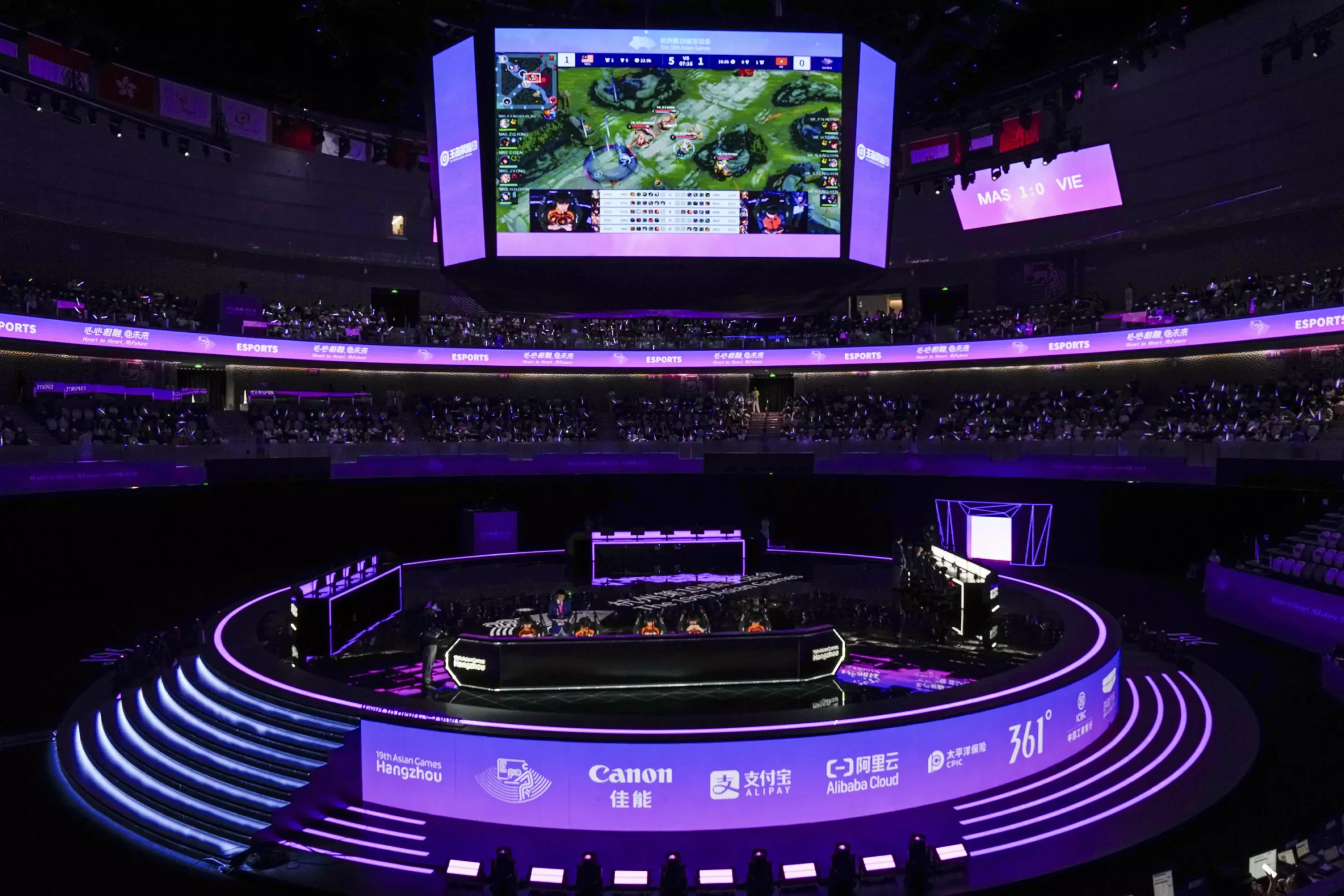The Asian Games has taken a groundbreaking step this year by including esports as a competitive sport, and South Korea’s League of Legends team has emerged as a dominant force. Led by their top player, Lee Sang-hyeok, also known as “Faker,” the South Korean team showcased their skills and proved why they are the favorites in the competition.
As the global games market continues to grow in terms of the number of players and revenue, esports has gained significant traction. For the first time in the history of the Asian Games, esports has been recognized as a competition sport. This move has been met with enthusiasm from both players and the audience, highlighting the growing influence and popularity of esports.
South Korea’s Success in League of Legends
League of Legends, a highly popular game, features intense battles between two teams of powerful champions aiming to destroy each other’s bases. Lee Sang-hyeok, playing under his renowned alias Faker, locked in the champion Yone for the match against Kazakhstan. With a strong and swift victory, South Korea showcased their superiority in the game.
More than National Pride at Stake
For the South Korean players, there is much more at stake than just national pride. The country exempts men from compulsory military service if they win gold medals at the Asian Games. This added motivation serves as a driving force for the South Korean team, pushing them to achieve their best and secure their exemption.
Lee Sang-hyeok, often referred to as the GOAT (Greatest of All Time) in the League of Legends community, is a true esports celebrity. His popularity extends beyond South Korea, with a significant fanbase in China. When he arrived at Hangzhou airport for the Asian Games, he was greeted by over 100 fans eager to catch a glimpse of the legendary player.
The esports competition at the Asian Games took place in Hangzhou’s purpose-built esports stadium, equipped with a 4,500-seat hall. The atmosphere was electric as players engaged in intense battles on their gaming terminals while spectators followed along on big-screens overhead. Esports has become a truly immersive experience, both for the players and the audience.
Looking Towards the Future
The inclusion of esports in the Asian Games reflects the growing recognition of video gaming as a legitimate sporting activity. The International Olympic Committee has acknowledged the potential of esports to engage with younger audiences and has established an esports commission dedicated to virtual sports. This move signifies a step towards the integration of esports into the broader realm of competitive sports.
The esports competition at the Asian Games features a diverse lineup of games, encompassing various genres. The lineup includes popular titles such as PUBG Mobile, Dota 2, Dream Three Kingdoms 2, Street Fighter V: Champion Edition, and EA Sports FC (also known as FIFA Online 4). Gold medals will be awarded for each game, representing the recognition and prestige that comes with being a champion in the esports world.
The Future of Esports
According to Newzoo, a leading research company specializing in tracking the global games market, the number of players worldwide is projected to reach 3.38 billion by 2023, with a year-on-year growth of 6.3%. Additionally, annual revenues are expected to grow by 2.6%, reaching $187.7 billion. These statistics highlight the immense potential and continued growth of the esports industry.
The Asian Games has set a precedent by including esports as a competitive sport, and South Korea’s League of Legends team has risen to the occasion. Led by the legendary player Faker, the South Korean team has showcased their dominance in the game. The success of esports at the Asian Games signifies the increasing recognition and popularity of esports as a legitimate sport worldwide. As the industry continues to flourish, we can expect esports to play an even more prominent role in future sporting events.


Leave a Reply